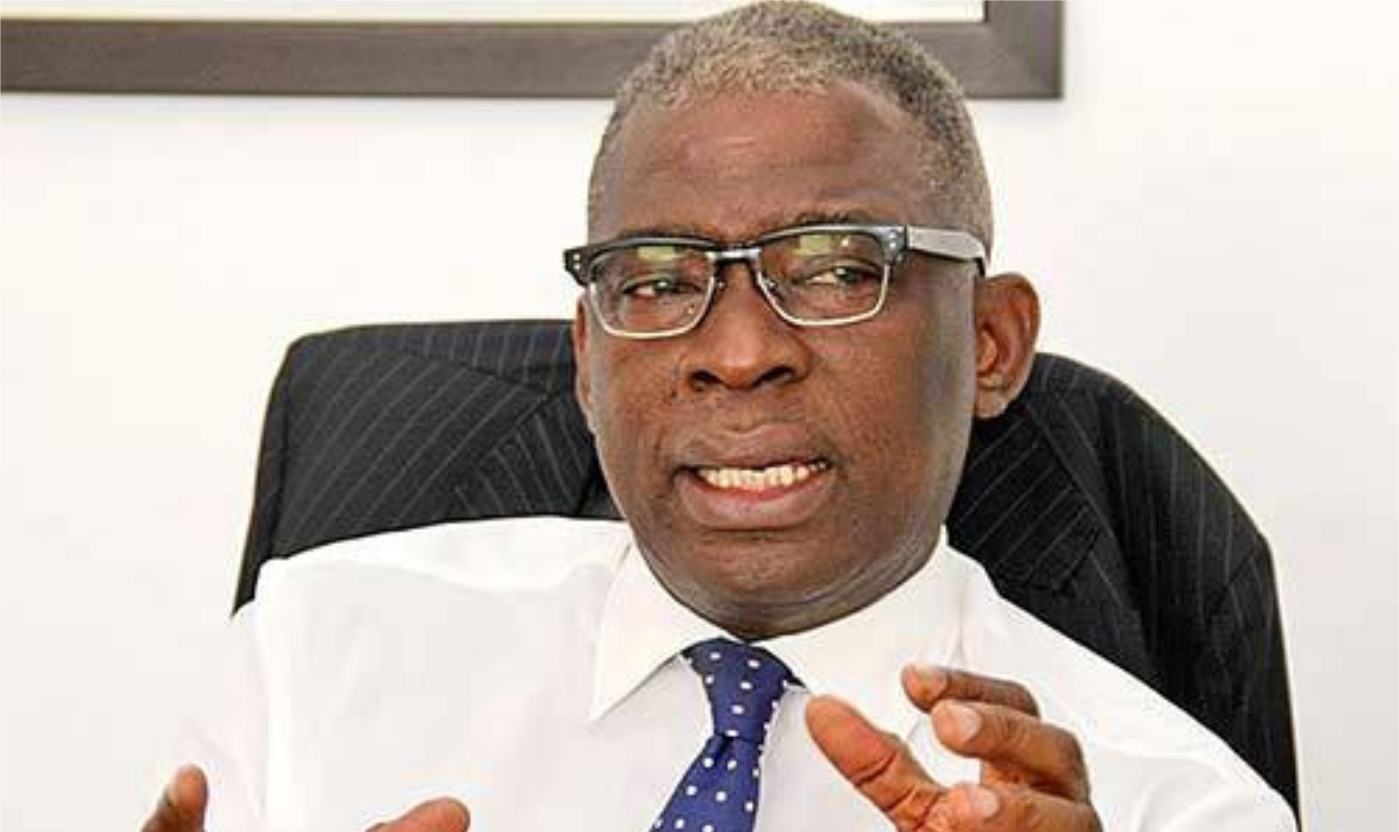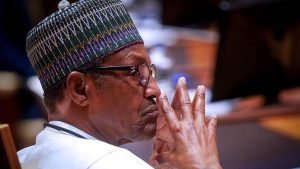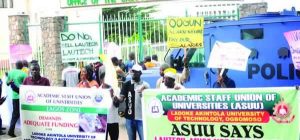
Supo Shasore, a celebrated legal luminary and a former commissioner of Justice in Lagos State has been fingered in connection with underhand dealings on the Process & Industrial Development Ltd. case contracted to him by the Federal Government. The FG hired Shashore to defend its interest against the claim of $10billion damages to the Irish firm, PI&D, but to the surprise of the pew and the common, Shashore was accused by a British court of conniving with P&ID to subvert the Nigerian Government.
It can be recalled that an independent tribunal found Nigeria guilty for renegading on the terms and agreement it signed with P&ID in 2010, to build a gas facility. The British Virgin Island firm has sought the enforcement of the ruling of the tribunal in a United Kingdom Court and knowing full well that further disobedience would lead to the seizure of Nigeria’s asset to manage the accruing liabilities incurred by the Irish firm. The London tribunal found Nigeria liable in 2017 to the tune of $6.6billion and the bill rose to 9.6 billion in 2020. The Nigerian government appealed the case with the representation of Supo Shasore, where the country was asked to pay 200 million dollars while the case proceeded in the meantime.
The P&ID contract had been called one of the major corrupt public contract heists in Nigeria, because it raised concerns that, if the he P&ID won the case, it would bear grave consequences to the country’s foreign reserves. Investigative media has also shown that the P&ID are an offshoot of Shell, who had long been dislodged from the Niger Delta for their involvement in the killing of Ken Saro Wiwa and nine others. Headed by Micheal Quinn and Brendan Cahill, the P&ID was reported to be an unknown company without an address, a website, but with deep connections with the Nigerian political class. The Economic and Financial Crimes Commission has since intervened to find out whether due process was carried out in the award of the contract and whether there were evidences of international corruption and bribery. It had collaborated with law enforcement agencies in the United Kingdom to ascertain the depths of corruption claims.
Nigeria positioned Supo Shashore to defend its integrity in its bilateral business dealings. Supo Shasore is a Senior Advocate of Nigeria, a fellow of the Chartered Institute of Arbitrators and a former President of the Lagos Court of Arbitration. He has championed major reforms in the Lagos State Judiciary as Attorney General and Commissioner of Justice, Lagos State. He is also a respected historian for his celebrated books such as Ministering Justice: Administration of Justice in Nigeria (2019), Platter of Gold: Making Nigeria (2016), Possessed: A History of Law and Justice in the Crown Colony of Lagos (2014), Commercial Arbitration-Arbitration Law & International Practice Practice in Nigeria (2011), Jurisdiction and Sovereign Immunity in Nigerian Commercial Law (Practice and Textbook by Johnson and Shasore). He was co-founding partner Ukiri and Shasore, later a partner at Ajumogobia and Okeke, before his appointment as Commissioner of Justice in Lagos State. Given the fact that he knew the law and the dimensions of negotiations both in history, theory and practice, the Nigerian government must have rested knowing that it had pitched its best to wage the frontiers of safeguarding its foreign reserves.
It is therefore a rude shock that the sparkling legal luminary was found guilty of receiving bribes from the P&ID in order to lobby some public officials working for the NNPC to the tune of $200,000.
This was revealed by Sir Ross Cranston of the United Kingdom Court of Justice, Queen’s Bench Divisional Commercial Court which found Shasore unworthy of his pedigree and legal standing on the 4th of September 2020.
Nigeria’s Lawyer, Mr Howard, a British counsel, had accused Shasore of conniving and colluding with P&ID in order to undermine the defence of the FG in the case. Howard asserted that he defended Nigeria without much vigour.
In advancing his case, Mr Howard asserted that ‘Mr Shasore had advised speedy settlement, as in his 17 July 2013 letter to the then Attorney General, without investigating the obvious defence that P&ID, a British Virgin Islands company with no experience, assert or finance, would not perform.’
He accused Shasore of not seeking disclosure of files available to Mr Quinn, co-founder of P&ID, as a useful source of evidence, neither did he distil any evidence from statement drafted from Mr Oguine of the NNPC. Howard also said that Shasore did not challenge Mr Quinn on the P&ID’s capacity to perform the contract, as well as provide evidence the $40 million, the company reported to have expended on the botched project. He asserted that he noticed the loopholes in Shasore’s defence when he did not challenge significant portions of Mr Quinn’s statement, and had further claimed that he was unaware that Mr Quinn had passed.
Mr Howard extended his claims against Shasore when he said that Shasore was found ‘dragging his feet’ when the arbitration process was transferred from the Ministry of Petroleum to the Attorney General for the ‘quantum stage’. He said without the cooperation of Shasore, the new counsel to Nigeria, Mr Ayorinde, found it difficult to proceed from where he stopped.
Although, Mr Mill, the P&ID lawyer put up a defence for the Nigerian lawyer, Supo Shashore, implying that the latter was reasonable and fair in his defence, having a full grasp of the consequence of the matter. He denied that Barr. Supo Shasore was conspiring with P&ID to undermine Nigeria’s defence. He also denied that Shasore had conspired with P&ID to subvert his own client, saying that there was no evidence available to cast such stance in stone. Mr Mill said it would be impossible for Shasore to have a full understing of the import of the case and yet work assiduously from August 2012 till the Final Award in January 2017 to lose the same.
‘As to the liability hearing, submitted Mr Mill, Mr Shasore tried his hardest – having misapprehended the implications of Procedural Order No. 9, and the discussion at the case management conference – to get himself out of a hole. By reference to the transcript and the Tribunal’s reasons, Mr Mill also submitted that there was nothing to prevent Mr Ayorinde from reopening the matter at the quantum stage of the arbitration’.
Despite the Defence, Sir Ross Cranston, the Judge, repudiated the defence of the P&ID lawyer, and he asserted that despite his intervention, sterling defence of Nigeria, and his urgency to negotiate with P&ID, ‘Mr Shashore’ was found wanting for paying $100,000 each to Ms Adelore of Ms Taiga and Mr Oguine; an official of the NNPC.’
‘However, what persuades me of the prima facie case of dishonesty in Mr Shasore’s conduct of the arbitration are his payments of US $100,000 each to Ms Adelore and Mr Oguine. Ms Adelore occupied Ms Taiga’s position at the Ministry as the senior lawyer, and Mr Oguine was her counterpart at the NNPC. Their salaries as Public Servants, according to the Attorney General, Mr Malami, were some US$500 Per Annum.’
Although Mr Mill had dissuaded the court from linking what he described as ‘gifts’ from Mr Shasore to bribery claiming that Shasore had made this information available to the EFCC. Yet the court stood its ground that Mr Shasore must have compromised the Nigerian government officials by soliciting favours to secure a settlement for P&ID and by frustrating the witness process that would bloster Nigeria’s defence.
‘In the result there is a possibility that Mr Shasore had been corrupted. At the least I accept Mr Howard’s submission that there is a prima facie case that Mr Shasore made the payments to Ms Adelore and Mr Oguine to purchase their silence in relation to his conduct of the arbitration and settlement negotiations. There is therefore a prima facie case that the arbitration proceedings were tainted.’ said Judge Cranston. The judge said that given the ample evidence, it shows that Shasore made underhand moves to ‘extract money from Nigeria through contrived settlement negotiations or arbitration.’
‘When Mr Shasore was replaced for the quantum hearing and Final Award, I also accept Mr Howard’s submission that Nigeria’s new counsel, Mr Ayorinde would have no reason to suppose that Mr Quinn’s evidence to the Tribunal had been perjured, that P&ID was not a legitimate business which was ready and able to perform the GSPA, or that Mr Shasore was implicated in illegitimate payments to senior civil servants acting with him.’ Judge Cranston further asserted.
Supo Shasore had made a statement available to the media where he asserted that he represented Nigeria at the first and second stages of the case with fear or favour, without receiving little or no cooperation from relevant government officials, and that he filed the urgent objections that should lead to the termination of the case. He described the prima facie case against him as ‘demonstrably false, unfounded and spiteful personal attacks’ . He said that he got only the support of the legal adviser of the NNPC who provided him with the few relevant documents he had to prosecute the case. Shasore said he engaged the UK firm of Shephenson Harwood, a respect law and arbitration firm in England to help set aside the liability accrued to Nigeria in England. Shasore said that despite the fact that he faced a hostile tribunal and was contesting the written testimony of a co-founder of P&ID who had long died before the proceedings showed that the UK court were not being fair. Shasore had gone further to protect himself by asserting the ‘falsity of that testimony; in the ‘High Court of England’.
Perhaps, Mr Supo Shasore sold out his hard-earned integrity and robust qualities in the elite and learned world for perhaps the threats within the framework of international politics. These political actors, cooperating to drum palpable threats beneath the veil of this national crisis may have caused Shasore to shift his gaze off his hard-earned integrity. He may prefer to commit a slight of logic much akin to treasonable felony against the State, which the State must take up whether false or true, in order to engender equity, equality and justice. Shasore, being a legal luminary cannot be said to be oblivious of the grave implications of being smeared with such labels-with dependable proof, that if not displaced, may remain in annals of history.
While we must not sweep this grave offence under the carpet, we must still give Supo Shasore the opportunity to defend himself from bombardments of the media. The media is justified to spark a discourse using the perceived tragedy of his act as a troupe for all that is wrong with supplanters of their legal representatives in the courtrooms in Nigeria and all that is wrong with the elite of a postcolonial hell. A lot of Nigerians hope that this would not be one of those many stories that remain beer parlour gossips that justify the efficacy of corruption, and preponderance of long ties with political actors to protect one from justice, as prevalent moral dosage to the evolving dystopia to bedevils Nigerians on a daily basis. Shasore presently stands in the presence of a huge moral burden to prove to Nigerians beyond reasonable doubt, within the confines of all legal frameworks that he is already familiar with, that he is patriotic and forthright with his dealings with his fatherland.
Suleiman Galadima

